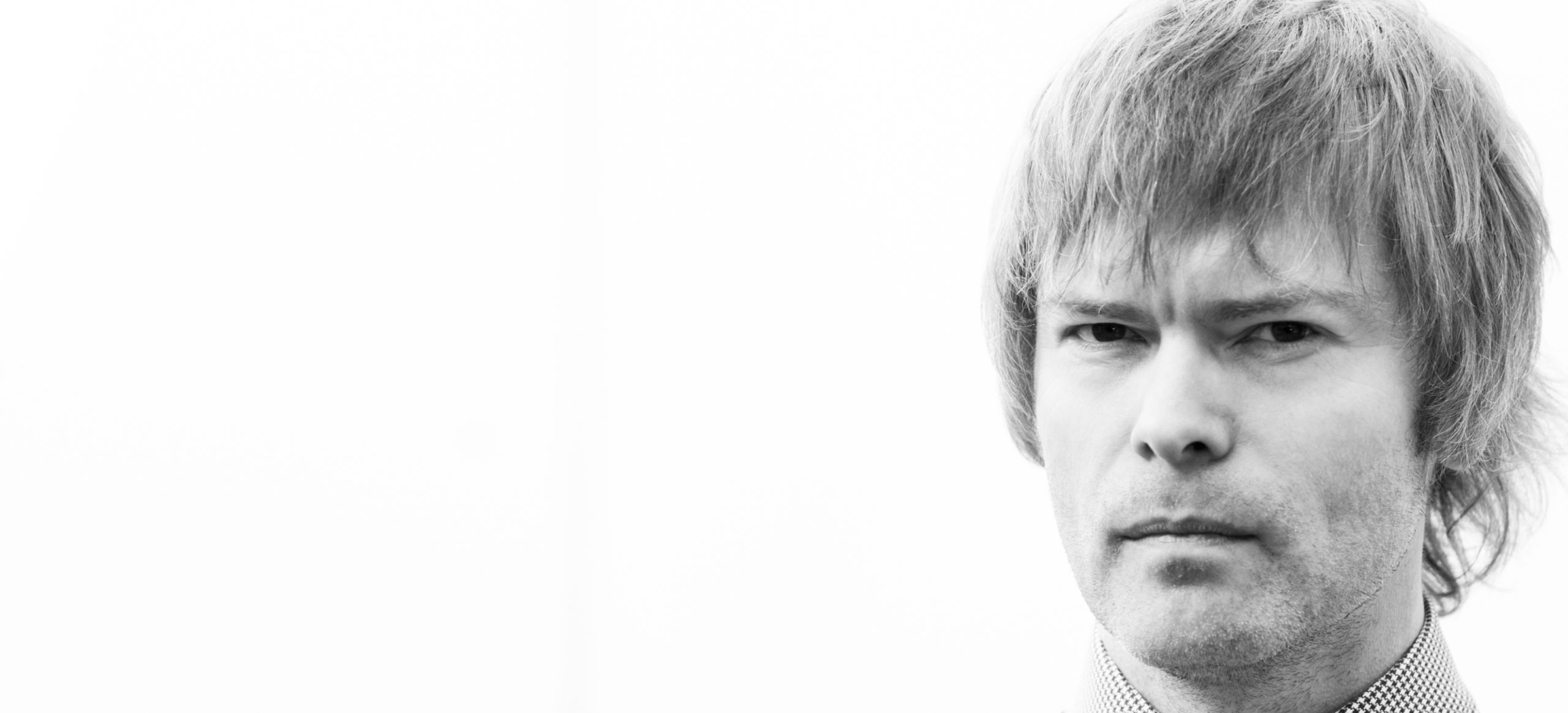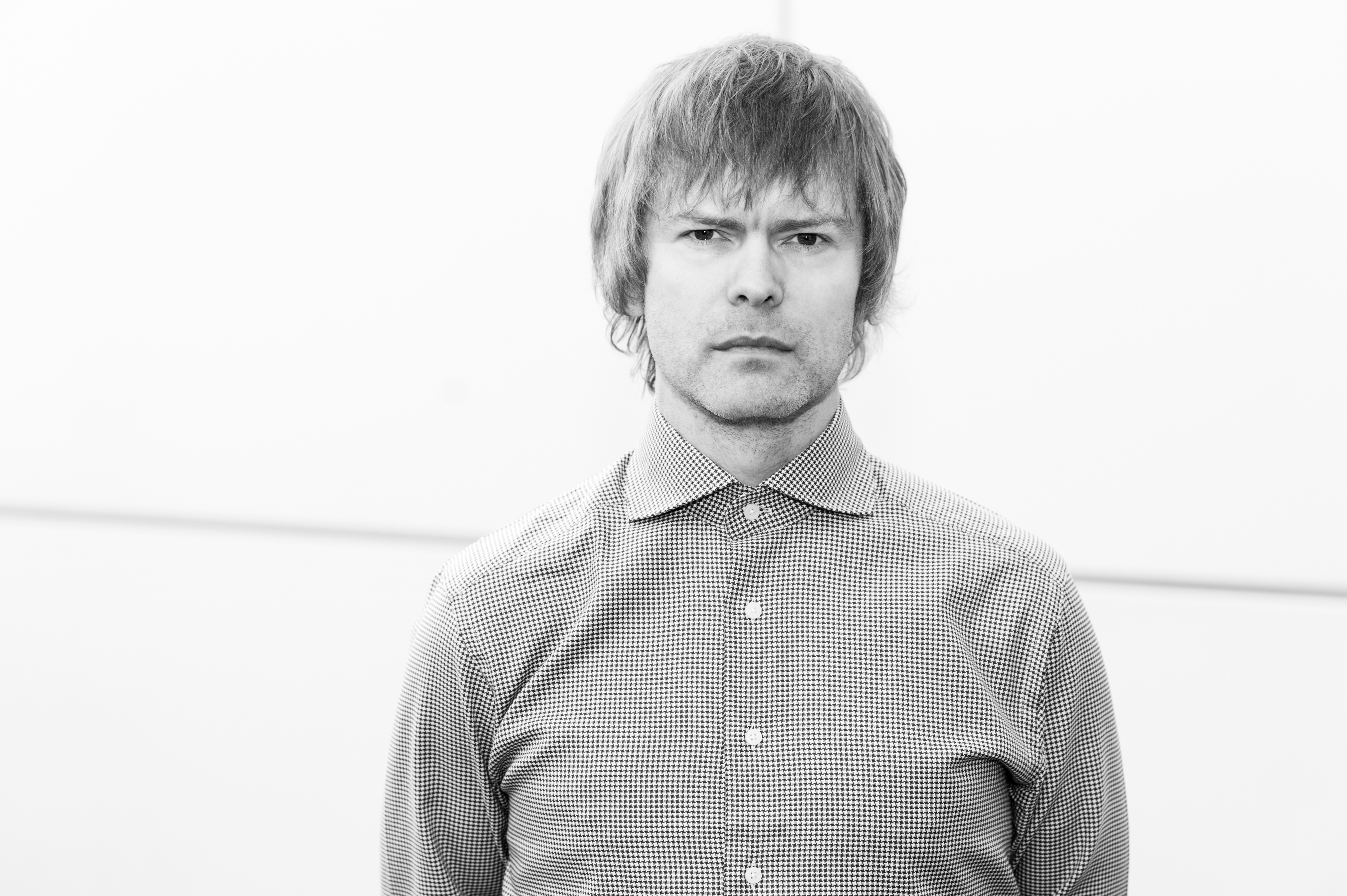Ask the Experts: Surgeon
Anthony Child steps forward.

Ask the Experts: Surgeon
Anthony Child steps forward.
Anthony Child, the artist better known as Surgeon, has answered your questions.
Since the 1990s, Anthony Child has established himself as one of the most consistent and pivotal electronic music producers. His releases have made him not only a key contributor to the legacies of touchstone labels Tresor and Downwards, but also a prized collaborator; his British Murder Boys duo with Regis has capitalized on both producers’ natural intensity to great effect.
Child’s is a tough techno sound with an industrial murk about it but also plenty of funk, swing, and a sophisticated sense of dub-space learned in part from his Chain Reaction contemporaries in Berlin. Outside of techno, Child’s work under his own name has shown him to have a masterful knowledge of the intimate qualities of drone and atmospheric sound. Further evidence of Child’s production skills can be seen on his impressive list of remixes.
Child’s new full-length, Luminosity Device, is his first album under the Surgeon moniker since 2016’s From Farthest Known Objects. It is intended as a deeply personal, bold confrontation of death and loss, and intends to show how immersive creative practices can build the resilience necessary to understand the death process as just another “intermediate state” in a continuum of eternal transition.
As a DJ, Surgeon sets are notable for experimentation with new DJ technologies, embracing cutting-edge hardware, increasingly blurring the line between a DJ set and a live performance.
Read his answers to your questions below.
I first saw you DJ in 1996 or 1997 “warming up” for Andrew Weatherall at the Orbit in Leeds—you know the era. It’s the only time I think I’ve seen a headliner (Andrew) play a slower set than the warm-up man. (Also, I didn’t get the nod that you and Karl were going to close the Orbit with your BMB thing so I missed that, after spending 10 years in that place.) I’ve now got two young boys. One likes trains, the other has got rhythm. For the boy with rhythm, what would be your advice to a youngster today if they wanted to learn the craft of the DJ?
Listen to music. Live music. Love music.
(P.S Karl & I didn’t know that it was going to be the last night of The Orbit at the time. Only the organisers knew that and didn’t tell anyone else).
For the other one, what is your favourite train?
I don’t know a lot about trains. I do remember taking a train back to Birmingham from Euston once on a train called the “Virgin Invader.” I thought that was a bit much!
Much has been said lately of mental illness in electronic music and how much touring can exacerbate it. Have you ever encountered this in your years of touring and how do you combat it on tour or in general?
Touring is physically and mentally a very unhealthy thing for anyone to do, especially for a long period of time. Most of the very grounding natural routines are massively disrupted. Yes, I’ve had to deal with these issues myself and I’ve seen them affect everyone else I’m close to in the music scene. This is especially apparent after 10-15 years for touring.
The most destructive element in this from my own experience and many of my friends is alcohol. Over time, I developed a very unhealthy relationship with alcohol. I used it more and more as a crutch, to stop me feeling, and it took me to a darker and darker place. It’s something that happened gradually and without me realising it. Fortunately, I had a powerful realisation and stopped drinking altogether at the beginning of 2010.
Getting as much rest as possible, eating as healthily as is possible, and doing some exercise are the best ways I’ve found to cope with touring.
On your Rinse FM show, you do “cat shoutouts” from all over the world and I wondered if you have ever been asked to play for any animal-related events?
Yes, I really enjoyed the “cat shoutouts.” It caught many people’s imagination and we all enjoyed playing along with the absurd game. I did actually have people ask me if it was some elaborate code, but it wasn’t.
No, I don’t remember playing at any animal-related events. I don’t think techno would work well for those. My cats don’t like it; it makes them do that thing where they point their ears back.
House of God in Birmingham was one of the standout techno nights in the UK. What have been your highlights there?
The whole thing really. The great friendships with all the people who run it. The love and trust of the audience. There were also some very “Studio 54” moments involving a dwarf performing cunnilingus on their friend on the dancefloor.
What do you think it means for music to be “experimental” in a time when nearly anyone has access to almost any musical tool ever created, can research almost any technique instantly online, and so much wildly varied music is being created daily?
I don’t believe that tools and technique lead to experimental music. They can lead to an imitation of experimental music. For me, experimental music lies in altering the deeper structure and form of music, re-writing those invisible scripts that everyone unconsciously follows.
How do you keep the inspiration flowing in? Or what do you do when you’ve reached a creative “dead end,” where your head is blank and the mind just won’t come up with something? In other words, how do you pull yourself out of a creative blackout?
If I don’t feel inspired by what’s happening in a certain music scene then I’ll take my inspiration from somewhere else. There is so much music out there, from so many different times and places. Inspiration can come for many exciting and unexpected places. You just need to open your mind to it.
In terms of the creative process, change something about the way you work. That usually works for me.
You were on a “DJing hiatus” in favour or playing live with the modular, but has this now come to an end?
I’m still performing various live projects and enjoying those and yes, I’ve also started DJing again. I’m really enjoying that too.
If you could invent a module, what would it do?
A module that would make you go outside.

Your collaborative project The Transcendence Orchestra recorded the album Modern Methods for Ancient Rituals over a 24-hour period in rural England. Was this recording completely improvised? How much do you think the setting in which you recorded the music affected it?
Cat’s Abbey, where we recorded that album, has a large lounge area so we set up all our instruments and microphones to record all the instruments and also the wider ambience in the hall. That way we could capture everything with multitrack recording. Then we’d improvise until we came up with a loose theme that we liked, start recording, and improvise around that theme. On most of the tracks, we’d play back what we’d just recorded over monitor speakers and record another take over the top of that usually using different instruments to the first take. This method gave us about 18 channels to mix down per track we recorded.
I think the very different setting to normal did have a big effect on the music that we created, both on a technical level as that was a very different way of recording, and also on the atmosphere of Cat’s Abbey and the very intensive period of music creation there.
Much of your work—whether collaborative or solo—revolves around a theme or direct inspiration, such as Luminosity Device and the Tibetan Book of the Dead. How do you approach recording a body of work with a direct correlation to another piece of art?
There really isn’t a standard way that works for me and it varies a lot from project to project. It largely comes down to what’s “turning me on” at the time I’m thinking about the project and actually recording it. Sometimes it will be very functional, like: How do I want people to feel when they listen to this music? Other times these ideas develop during the recording process and sometimes they’re fully formed before I’ve started recording anything. A lot of the time I’m playing with the structure of techno. Bending and stretching it. Very often I’m trying to subtly challenge the listeners’ preconceptions, not just about techno or music, but about life, the universe, and everything.
What are your thoughts on the current state of the techno scene? What do you think it needs to move forward or innovate (if anything)?
In a lot of ways, it’s the same as it’s always been, although it does seem to expand and contract depending on fashion and popularity. There are a few people making interesting music and more making good functional music; I really just focus on the music that excites me and don’t give time or energy to music I don’t like. Honestly, I tend not to think of music in terms of genre or when or where it was recorded.
In terms of moving forward or innovating then everyone involved needs to challenge themselves and not become too comfortable and lazy. Always challenge pre-existing structures as well as unwritten rules about how thing should be.
You’ve spoken a lot over the years about changing your studio setup and configurations to keep yourself interested. What is your preferred studio/recording setup at the moment?
It varies a lot from project to project, but for quite some time I’ve really enjoyed creating the source material by jamming with hardware and recording that into the computer. Then arranging, processing, and mixing that in a DAW. I find that gives me a good balance between a live human feel and machine precision.

